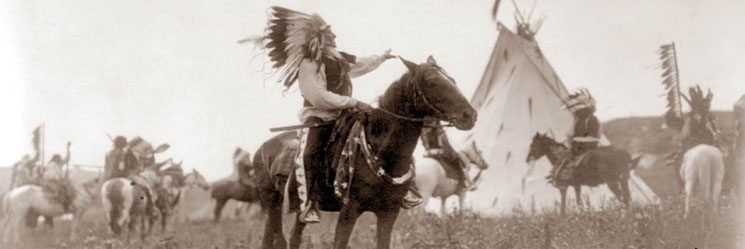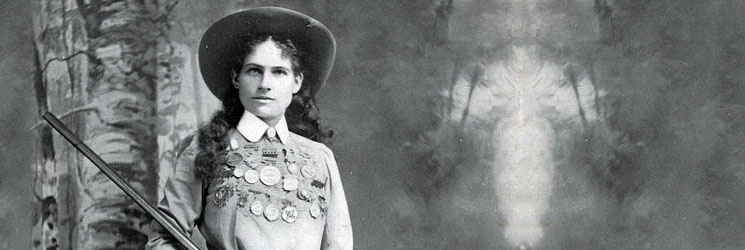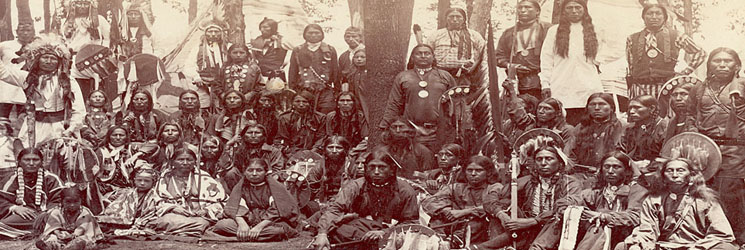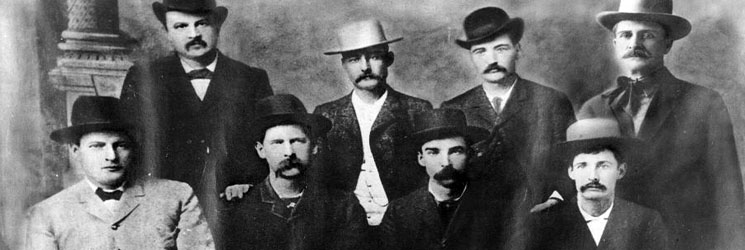(c.1856-1932)
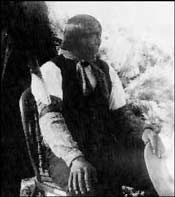
Wovoka was the Paiute mystic whose religious pronouncements spread the Ghost Dance among many tribes across the American West. HHe was known as the messiah to his followers.
Wovoka was born in Western Nevada, in what is now Esmeralda County, around 1856. At about the age of fourteen his father died, leaving Wovoka to be raised by the family of David Wilson, a nearby white rancher. Wovoka soon took the name Jack Wilson, by which he was broadly known among both neighboring whites and Indians. He worked on Wilson’s ranch well into adulthood, learned to speak English and was exposed to a fair amount of the Christian religion.
At around age thirty, Wovoka began to weave together various cultural strains into the Ghost Dance religion. He had a rich tradition of religious mysticism upon which to draw. Around 1870, a northern Paiute named Tavibo had prophesied that while all whites would be swallowed up by the earth, all dead Indians would emerge to enjoy a world free of their conquerors. He urged his followers to dance in circles, already a tradition in the Great Basin area, while singing religious songs. Tavibo’s movement spread to parts of Nevada, California and Oregon. Whether or not Tavibo was Wovoka’s father, as many at the time believed, in the late 1880 s Wovoka began to make similar prophecies. His pronouncements heralded the dawning of a new world, in which whites would vanish, leaving Indians to live in a land of material abundance, spiritual renewal and immortal life.
Wovoka’s prophecies stressed the link between righteous behavior and salvation which was not to be passively awaited but welcomed by a regime of ritual dancing and good moral conduct. Wovoka charged his followers to “not hurt anybody or do harm to anyone. You must not fight. Do right always… Do not refuse to work for the whites and do not make any trouble with them.” And while the Ghost Dance was sometimes viewed as an expression of Indian militancy and the desire to preserve traditional ways, Wovoka’s pronouncements actually bore great similarities to Christian beliefs: invocation of a “Supreme Being,” immortality, pacifism and explicit mentions of Jesus (such as “the messiah who came once to live on earth with the white man but was killed by them”).
The Ghost Dance spread throughout much of the West, especially among the more recently defeated Indians of the Great Plains. In 1889 the Lakota sent a delegation to visit Wovoka. This group brought the Ghost Dance back to their reservations, where believers made sacred shirts — said to be bullet-proof, especially for the Dance.
The slaughter of Big Foot’s band at Wounded Knee Creek in 1890 was proof that whites were not about to simply vanish as stated in Wovoka’s prophecy. Wovoka quickly lost his notoriety and lived as Jack Wilson until sometime in 1932.

